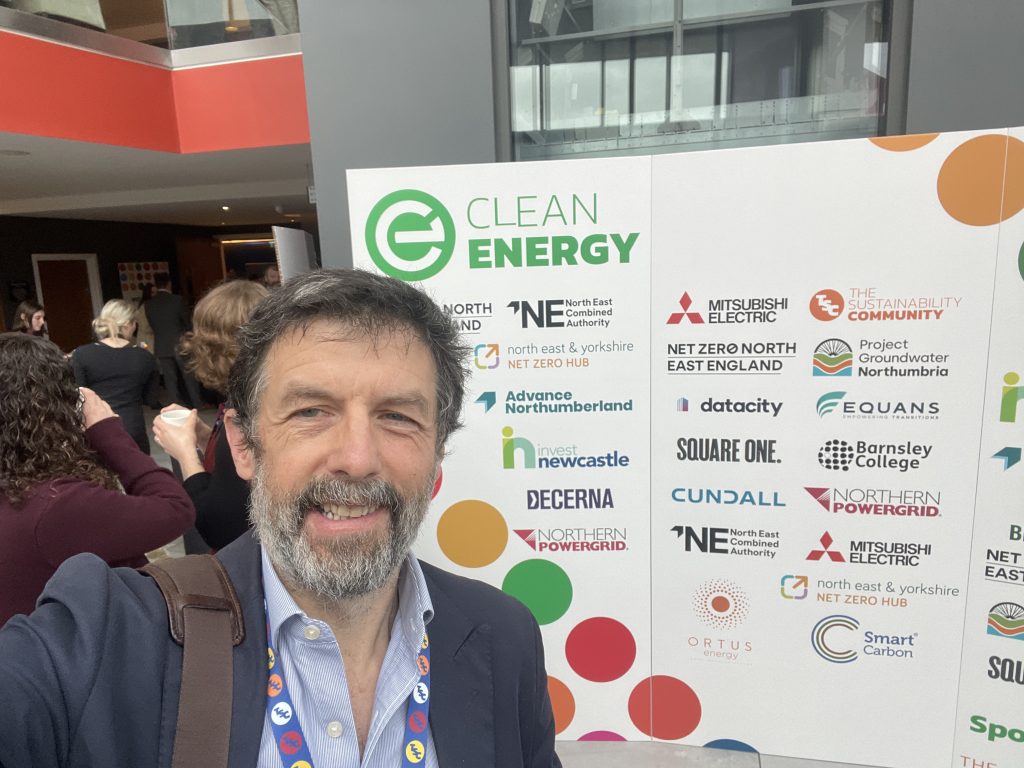Multiple Sustainability event brain dump

On Tuesday morning I was at the Clean Energy UK/Net Zero North East England conference and, after an interlude talking hedgehogs and local authority finance (separately!) in the afternoon, attended a sustainable public transport event in the evening. Yesterday I gave a talk/rant on sustainability policy at the _shift conference on Sustainability in the built environment before delivering the Net Zero Business Academy session on leadership in the afternoon and finally dragging my fried brain to Council in the evening (with my political hat on). It’s all been a mad blur and this is the first time I’ve been able to take a breath and think about it all in the round.
My big takeaway from the Sustainability events was backlash, schmacklash. The theme coming from all sectors – energy, development, banking, transport etc – was “yes, there’s a lot of anti-Net Zero noise, but decarbonisation is the only rational way forward and we’re not going to be distracted from it.” Amen to that!
My biggest concern was a failure to grasp opportunities. Whether it’s wind turbines or electric buses, we are largely buying in kit rather than manufacturing any of it here. While this is all part of the predominant postwar trend of deindustrialisation, it is a shame we have been unable to use the transition to reshore some of that manufacturing. Ironically it is probably the high cost of gas that is getting in the way.
My own talk was built on my belief that policy development in England is far too centralised. I used a relatable theme that, while pavement parking in London has been banned since 1974, me and my 77 fellow Newcastle Councillors cannot vote for (or against) implementing the same policy in this city. Successive Governments have sat on the results of a consultation on devolving this power to local authorities since 2020, too scared to let us off the leash in case they get negative headlines. I gave numerous examples where devolution of power had led to innovative policies, eg climate adaptation design codes in Portland Oregon, recycling in Wales (2nd best in the world), that other authorities could replicate if they were allowed to.
Whether within private or public organisations, I’m a big fan of “try lots of stuff, keep what works, drop what doesn’t” but it requires agency to do this. It’s another example of where removing barriers on the road to the goal you want to achieve is more important than ever.

